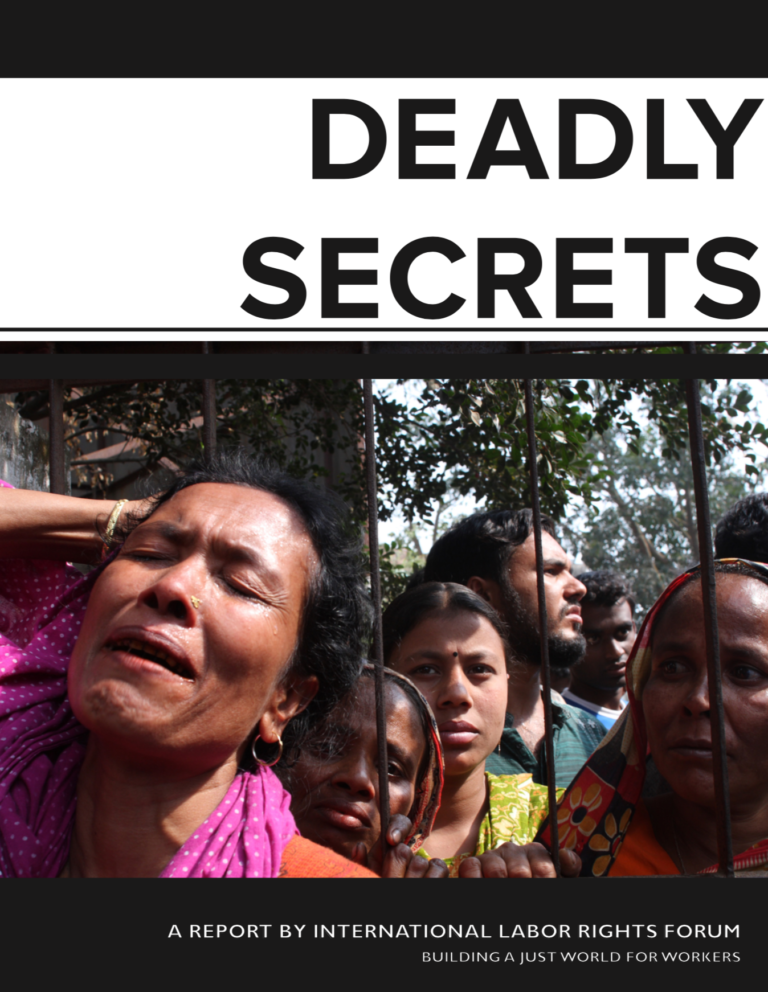For many years the dirty secret of the steadily growing Bangladeshi garment industry has been its underpaid workers, treated as disposable objects. The lowest paid garment workers anywhere in the world, hundreds of them have died in preventable factory fires and building collapses during the last two decades, and many more have been injured. After each tragedy, workers have demanded “no more fires,” but they have not been heard. Brands and retailers have conducted factory audits, but not shared the results with government agencies or workers even to tell them about imminent dangers. The audits are confidential, their own private knowledge of workplace hazards and labour violations.
Herein lies the twin obstacles to a safe and secure workplace for Bangladeshi garment workers: workers own voices are silenced and companies choose not to talk openly about what they know.
The setting for this report is Bangladesh and the basis for the proposals for change are the inhumane conditions of millions of Bangladeshi garment workers. But reports based on other settings
would yield the same conclusions, namely, that the best model for real fire safety in the global apparel industry is one founded on respect for workers. Real fire safety means workers are free to report
on dangers in their own workplace and have the ability to negotiate better conditions; they have a voice that cannot be ignored. It also means that the large apparel buyers share their private knowledge about workplace hazards with workers and accept responsibility for their safety.

